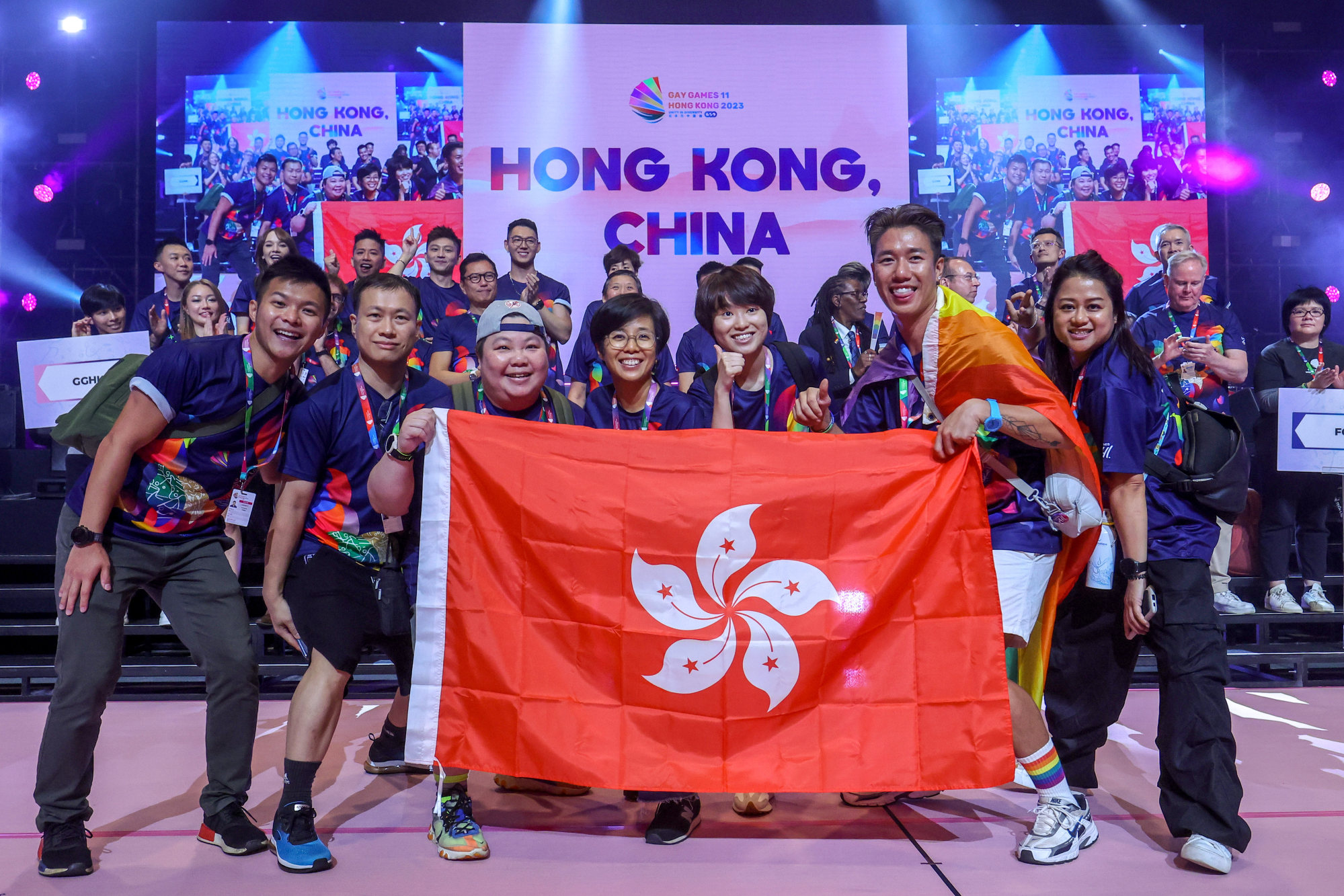
Hong Kong equal opportunities watchdog told asking for legislative changes to protect LGBTQ people beyond its powers
- Equal Opportunities Commission chief Ricky Chu says body spent more than year looking at ‘feasibility’ of legal changes to bolster LGBTQ rights
- Chu says commission told by Department of Justice legislative amendments beyond its powers
Equal Opportunities Commission’s (EOC) chairperson Ricky Chu Man-kin, speaking on Friday at a panel discussion on diversity and inclusion as part of the celebration of the 120th anniversary of the Post, noted that between 2020 and 2021 the body had examined the “feasibility” of legal changes to protect LGBTQ rights.
“At that time we were already working on some legislative amendments research for more than 18 months,” Chu said. “Then came … advice from the Department of Justice – If the EOC were to do that, then [it] would be acting ‘ultra vires’,” he said, a Latin legal term which means actions beyond the scope of a body’s legal powers.
“Faced with that advice, we had to change tack.”

The commission was established in 1996 to enforce anti-discrimination legislation designed to cover family status, disability, race and gender. But there is no legislation to protect sexual minorities from bias and prejudice.
The functions and powers of the EOC listed on its website include keeping legislation under review and, when necessary, drawing up proposals for amendments.
But Chu rejected suggestions the justice department advice meant the commission was a toothless tiger or that its hands were tied. He added that the organisation’s own lawyers considered the department’s advice and came to the same conclusion.
“There is nothing in the sex discrimination ordinance that empowers the EOC to look into legislative amendments on issues outside the ordinances,” Chu said after the panel discussion.
Appeal over Hong Kong court’s backing of man’s right to inherit husband’s home
He added the legislation also prohibited the commission from looking at other forms of discrimination, such as prejudice based on age.
“It’s not a matter of our hands being tied, it’s a matter of legal advice that we shouldn’t look at it at all,” Chu said.
He added, instead of proposing amendments, the commission was reviewing existing laws, such as the Sex Discrimination Ordinance, to see whether there was anything in existing legislation that could be applicable to LGBTQ people’s empowerment and welfare, or to protect them against discrimination.
When Chu was appointed as chairman in 2019 he said there would be a “change of approach” to tackling LGBTQ matters.
He said he wanted to add protections to existing legislation rather than campaigning for a single fresh law, as had been done in the past.

Chu had said the new approach was necessary after the commission’s failed effort to get the government to enact anti-discrimination legislation to cover LGBTQ people in 2016.
The Post has contacted the Department of Justice for comment.
Also speaking on Friday’s panel were Abby Lee, the chairwoman of LGBTQ carnival organiser Pink Dot Hong Kong, Kriti Children’s Centre founder Divya Gurung and Sudesh Thevasenabathy, the head of diversity, equity and inclusion in Asia for insurance firm Manulife.
Lee highlighted the “achievements and wins” for LGBTQ people in Hong Kong, such as recent court decisions on housing rights and visas for spouses.
“It’s been a long journey,” Lee said. “But we are fortunate to have a lot of allies.”
How Hong Kong’s Gay Games stumbled near finishing line but still made ‘history’
Hong Kong is the first Asian city to host the Gay Games, a sports and culture event founded in 1982 which is open to people from all backgrounds and normally held every four years.
This year’s event in Hong Kong involved about 2,400 athletes from more than 40 jurisdictions who competed in a variety of events, including dragon boat racing, mahjong and tennis.
The event, which started on November 3, is being co-hosted by Guadalajara, Mexico, and ends on Saturday..
“It’s a very exhilarating and touching moment for us to see this being delivered,” Lee said. “To see how the community – and not just the LGBTQ community, but the whole community here in Hong Kong and across the globe – has come together in Hong Kong to celebrate unity and diversity in sports.”

